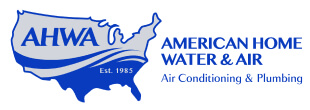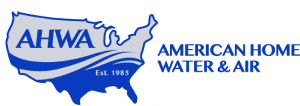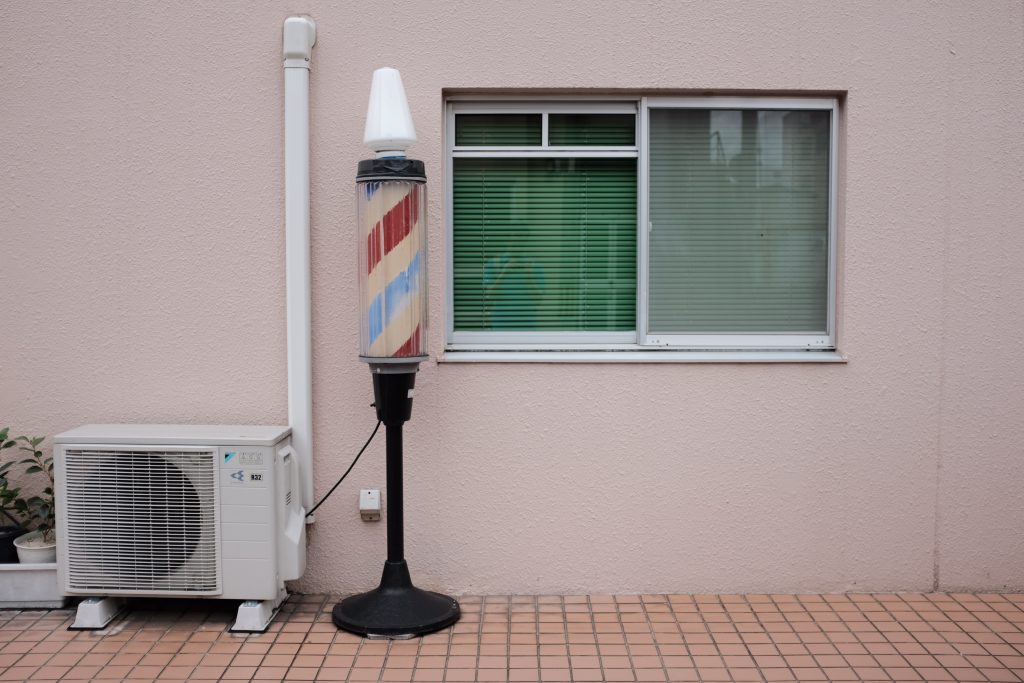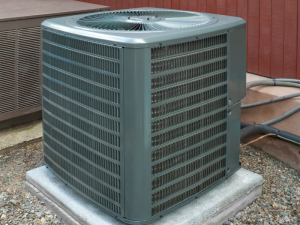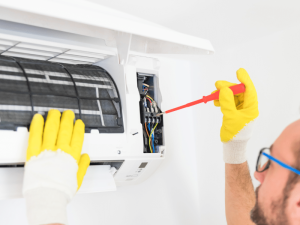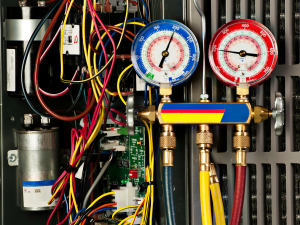In January 2023, HVAC regulations will change, setting new minimum efficiency HVAC standards for heating and cooling systems. These new HVAC requirements will impact the costs for both HVAC installation companies and home or building owners, so we all must be prepared for the changes.
2023 HVAC efficiency standards for residential air conditioning systems are set according to a border established between the north and south regions of the U.S. The minimum efficiency standards for residential air conditioners in the southern region, which includes Arizona, will increase to 15 SEER. The current standard in this region is 14 SEER.
SEER Ratings and Changes
SEER stands for Seasonal Energy Efficiency Ratio. This standard is determined by taking the ratio of a cooling unit’s output over a typical season and dividing it by the watts-hours used to achieve this level. Basically, SEER indicates how effective your air conditioning system is at utilizing your energy source to create cool air. The larger this number is, the more efficient your system is, which translates into a lower utility bill.
According to the U.S. Energy Information Administration, HVAC requirements for air-source heat pumps will mean they must meet a heating efficiency standard determined by the equipment’s heating seasonal performance factor (HSPF). The minimum HSPF is currently set at 8.2. The new regulations will increase it to 8.8.
Just like with the SEER ratings that apply to air conditioning, HSPF measures your heat pump’s ability to convert your energy source into heat. The higher the number, the more efficient your heating unit is, meaning decreased energy costs during the cooler months.
What These Changes Mean for Homeowners
So, beyond energy savings, why is all of this important to you as a homeowner or building owner? If your existing system is working fine and you have no intentions of upgrading or replacing it in the near future, maybe not that much. However, if you have a unit in danger of failure or you are planning to finance and install HVAC units soon, it could be very important for you to be aware of the changes that will kick in come January 2023.
Building owners and contractors will need to be aware that any units purchased before the HVAC requirements change will need to have a bit more consideration given to when the units will be installed. Any units that do not meet the updated standards coming into effect will need to be installed no later than December 31, 2022. Otherwise, you’ll need to purchase units that meet the new 2023 standards. Failure to address this issue during the planning stages could result in unnecessary delays and extra costs.
HVAC installers are already busy getting educated on the new air conditioning regulations before they are put into place. Likewise, purchasers are aware of the timeline for procuring HVAC units and their installation so that they don’t find themselves with units that can no longer be used once HVAC requirements change. This will become increasingly important as the end of the year approaches, especially for larger-scale jobs where more than one unit is required and must be ordered well in advance.
Increased Prices Due to Added Requirements
It is also likely that there will be increased prices along with the increased efficiencies. As the deadline grows closer, that price will increase as demand surges, so it is wise to plan wherever possible. Most of these price increases will be driven by the requirement for higher-performing components, improved fan systems, and large chassis sizes. All of these will require additional copper, plastic, and other commodities, and thus, buyers will incur more expenses for the acquisition, logistics, and production of HVAC units that meet the new criteria. Those added costs will have to be passed along to consumers.
It is important to discuss any plans for HVAC updates with a reliable service professional who can give more personal advice and talk you through the coming changes for just these reasons. End customers will need to understand that these new standards will affect any upgrades that are being planned or unexpected failures that might take place toward the end of the year or after December 31. This is a suitable time for all homeowners and building owners to have their units inspected and replaced. A licensed professional can provide you with a full inspection and any recommendations pertinent to your needs.
Armed with the information about the changes and added costs that are to come in the new year, customers will be much better equipped to make the best decision for their unique circumstances and plans. It is far better to have some time to evaluate choices now rather than find yourself forced to incur extra costs when you aren’t prepared to do so.
Changes to Refrigerant Requirements
In addition to the changes already discussed, there is also some indication that there will also be refrigerant changes. Since the government changed standards in 2020, legacy systems have been allowed to utilize only recovered, recycled, or reclaimed R-22 hydrocarbon refrigerant. The price of these refrigerants has gradually increased over time.
Additionally, there will likely be a reduction in R-410A refrigerant on the market once the new HVAC standards are in place as new systems transition to newer refrigerants. This will also have to be a consideration for anyone planning to install upgraded units or replace older models.
Conclusion
While much of this might sound confusing to someone not familiar with HVAC systems and the regulations that affect them, the bottom line is that the 2023 HVAC regulations will require any new units to adhere to increased efficiency standards. This is the time to address whether you need to replace your old system before you’re faced with the extra costs of installing a new or replacement unit after the first of the coming year.
It is highly recommended that anyone with an HVAC unit that might require an update look at doing it before the end of the year. Schedule an appointment to have your unit inspected. American Home Water and Air will gladly evaluate your system for you and make any recommendations for replacement or repair of any issues that might help extend the life of your unit.
